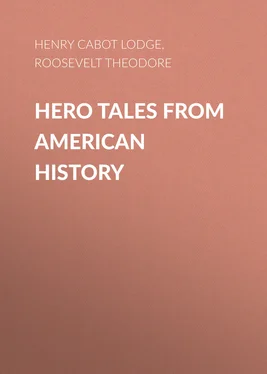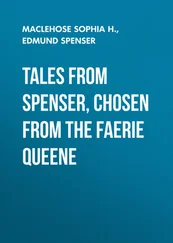Henry Cabot Lodge - Hero Tales from American History
Здесь есть возможность читать онлайн «Henry Cabot Lodge - Hero Tales from American History» — ознакомительный отрывок электронной книги совершенно бесплатно, а после прочтения отрывка купить полную версию. В некоторых случаях можно слушать аудио, скачать через торрент в формате fb2 и присутствует краткое содержание. Жанр: foreign_humor, Юмористические книги, История, foreign_edu, foreign_antique, foreign_prose, на английском языке. Описание произведения, (предисловие) а так же отзывы посетителей доступны на портале библиотеки ЛибКат.
- Название:Hero Tales from American History
- Автор:
- Жанр:
- Год:неизвестен
- ISBN:нет данных
- Рейтинг книги:3 / 5. Голосов: 1
-
Избранное:Добавить в избранное
- Отзывы:
-
Ваша оценка:
- 60
- 1
- 2
- 3
- 4
- 5
Hero Tales from American History: краткое содержание, описание и аннотация
Предлагаем к чтению аннотацию, описание, краткое содержание или предисловие (зависит от того, что написал сам автор книги «Hero Tales from American History»). Если вы не нашли необходимую информацию о книге — напишите в комментариях, мы постараемся отыскать её.
Hero Tales from American History — читать онлайн ознакомительный отрывок
Ниже представлен текст книги, разбитый по страницам. Система сохранения места последней прочитанной страницы, позволяет с удобством читать онлайн бесплатно книгу «Hero Tales from American History», без необходимости каждый раз заново искать на чём Вы остановились. Поставьте закладку, и сможете в любой момент перейти на страницу, на которой закончили чтение.
Интервал:
Закладка:
It was only just in time, for Breymann, who had taken thirty hours to march some twenty-four miles, came up just after Baum's men had laid down their arms. It seemed for a moment as if all that had been gained might be lost. The Americans, attacked by this fresh foe, wavered; but Stark rallied his line, and putting in Warner, with one hundred and fifty Vermont men who had just come on the field, stopped Breymann's advance, and finally forced him to retreat with a loss of nearly one half his men. The Americans lost in killed and wounded some seventy men, and the Germans and British about twice as many, but the Americans took about seven hundred prisoners, and completely wrecked the forces of Baum and Breymann.
The blow was a severe one, and Burgoyne's army never recovered from it. Not only had he lost nearly a thousand of his best troops, besides cannon, arms, and munitions of war, but the defeat affected the spirits of his army and destroyed his hold over his Indian allies, who began to desert in large numbers. Bennington, in fact, was one of the most important fights of the Revolution, contributing as it did so largely to the final surrender of Burgoyne's whole army at Saratoga, and the utter ruin of the British invasion from the North. It is also interesting as an extremely gallant bit of fighting. As has been said, there was no strategy displayed, and there were no military operations of the higher kind. There stood the enemy strongly intrenched on a hill, and Stark, calling his undisciplined levies about him, went at them. He himself was a man of the highest courage and a reckless fighter. It was Stark who held the railfence at Bunker Hill, and who led the van when Sullivan's division poured into Trenton from the river road. He was admirably adapted for the precise work which was necessary at Bennington, and he and his men fought well their hand-to-hand fight on that hot August day, and carried the intrenchments filled with regular troops and defended by artillery. It was a daring feat of arms, as well as a battle which had an important effect upon the course of history and upon the fate of the British empire in America.
KING'S MOUNTAIN
Our fortress is the good greenwood,
Our tent the cypress tree;
We know the forest round us
As seamen know the sea.
We know its walls of thorny vines,
Its glades of reedy grass,
Its safe and silent islands
Within the dark morass.
The close of the year 1780 was, in the Southern States, the darkest time of the Revolutionary struggle. Cornwallis had just destroyed the army of Gates at Camden, and his two formidable lieutenants, Tarlton the light horseman, and Ferguson the skilled rifleman, had destroyed or scattered all the smaller bands that had been fighting for the patriot cause. The red dragoons rode hither and thither, and all through Georgia and South Carolina none dared lift their heads to oppose them, while North Carolina lay at the feet of Cornwallis, as he started through it with his army to march into Virginia. There was no organized force against him, and the cause of the patriots seemed hopeless. It was at this hour that the wild backwoodsmen of the western border gathered to strike a blow for liberty.
When Cornwallis invaded North Carolina he sent Ferguson into the western part of the State to crush out any of the patriot forces that might still be lingering among the foot-hills. Ferguson was a very gallant and able officer, and a man of much influence with the people wherever he went, so that he was peculiarly fitted for this scrambling border warfare. He had under him a battalion of regular troops and several other battalions of Tory militia, in all eleven or twelve hundred men. He shattered and drove the small bands of Whigs that were yet in arms, and finally pushed to the foot of the mountain wall, till he could see in his front the high ranges of the Great Smokies. Here he learned for the first time that beyond the mountains there lay a few hamlets of frontiersmen, whose homes were on what were then called the Western Waters, that is, the waters which flowed into the Mississippi. To these he sent word that if they did not prove loyal to the king, he would cross their mountains, hang their leaders, and burn their villages.
Beyond the, mountains, in the valleys of the Holston and Watauga, dwelt men who were stout of heart and mighty in battle, and when they heard the threats of Ferguson they burned with a sullen flame of anger. Hitherto the foes against whom they had warred had been not the British, but the Indian allies of the British, Creek, and Cherokee, and Shawnee. Now that the army of the king had come to their thresholds, they turned to meet it as fiercely as they had met his Indian allies. Among the backwoodsmen of this region there were at that time three men of special note: Sevier, who afterward became governor of Tennessee; Shelby, who afterward became governor of Kentucky; and Campbell, the Virginian, who died in the Revolutionary War. Sevier had given a great barbecue, where oxen and deer were roasted whole, while horseraces were run, and the backwoodsmen tried their skill as marksmen and wrestlers. In the midst of the feasting Shelby appeared, hot with hard riding, to tell of the approach of Ferguson and the British. Immediately the feasting was stopped, and the feasters made ready for war. Sevier and Shelby sent word to Campbell to rouse the men of his own district and come without delay, and they sent messengers to and fro in their own neighborhood to summon the settlers from their log huts on the stump-dotted clearings and the hunters from their smoky cabins in the deep woods.
The meeting-place was at the Sycamore Shoals. On the appointed day the backwoodsmen gathered sixteen hundred strong, each man carrying a long rifle, and mounted on a tough, shaggy horse. They were a wild and fierce people, accustomed to the chase and to warfare with the Indians. Their hunting-shirts of buckskin or homespun were girded in by bead-worked belts, and the trappings of their horses were stained red and yellow. At the gathering there was a black-frocked Presbyterian preacher, and before they started he addressed the tall riflemen in words of burning zeal, urging them to stand stoutly in the battle, and to smite with the sword of the Lord and of Gideon. Then the army started, the backwoods colonels riding in front. Two or three days later, word was brought to Ferguson that the Back-water men had come over the mountains; that the Indian-fighters of the frontier, leaving unguarded their homes on the Western Waters, had crossed by wooded and precipitous defiles to the help of the beaten men of the plains. Ferguson at once fell back, sending out messengers for help. When he came to King's Mountain, a wooded, hog-back hill on the border line between North and South Carolina, he camped on its top, deeming that there he was safe, for he supposed that before the backwoodsmen could come near enough to attack him help would reach him. But the backwoods leaders felt as keenly as he the need of haste, and choosing out nine hundred picked men, the best warriors of their force, and the best mounted and armed, they made a long forced march to assail Ferguson before help could come to him. All night long they rode the dim forest trails and splashed across the fords of the rushing rivers. All the next day, October 16, they rode, until in mid-afternoon, just as a heavy shower cleared away, they came in sight of King's Mountain. The little armies were about equal in numbers. Ferguson's regulars were armed with the bayonet, and so were some of his Tory militia, whereas the Americans had not a bayonet among them; but they were picked men, confident in their skill as riflemen, and they were so sure of victory that their aim was not only to defeat the British but to capture their whole force. The backwoods colonels, counseling together as they rode at the head of the column, decided to surround the mountain and assail it on all sides. Accordingly the bands of frontiersmen split one from the other, and soon circled the craggy hill where Ferguson's forces were encamped. They left their horses in the rear and immediately began the battle, swarming forward on foot, their commanders leading the attack.
Читать дальшеИнтервал:
Закладка:
Похожие книги на «Hero Tales from American History»
Представляем Вашему вниманию похожие книги на «Hero Tales from American History» списком для выбора. Мы отобрали схожую по названию и смыслу литературу в надежде предоставить читателям больше вариантов отыскать новые, интересные, ещё непрочитанные произведения.
Обсуждение, отзывы о книге «Hero Tales from American History» и просто собственные мнения читателей. Оставьте ваши комментарии, напишите, что Вы думаете о произведении, его смысле или главных героях. Укажите что конкретно понравилось, а что нет, и почему Вы так считаете.












